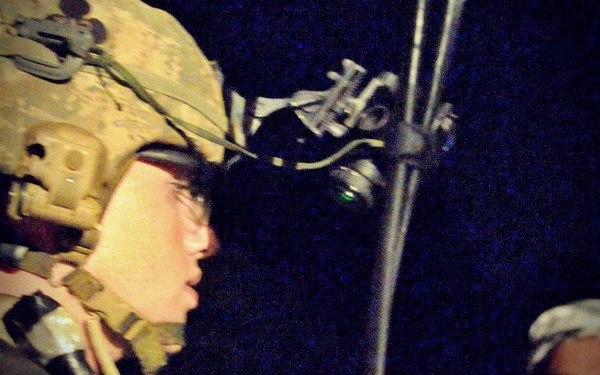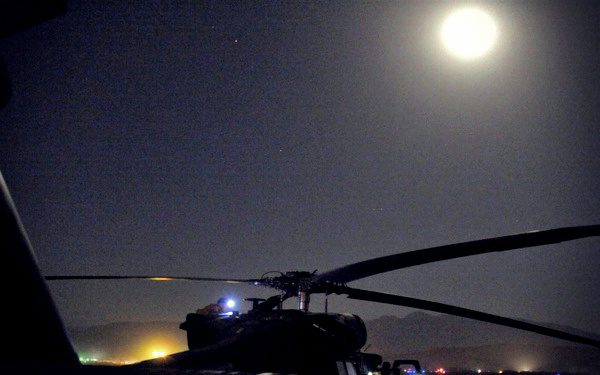Overview of administrative inspections:
The military’s two-part test. Mil. R. Evid. 313(b).
Primary purpose test.
(1) Inspection. The primary purpose of an inspection must be to ensure the security, military fitness, or good order and discipline of the unit (administrative purpose).
(2) Criminal search. An examination made for the primary purpose of obtaining evidence for use in a court-martial or in other disciplinary proceedings (criminal purpose) is not an inspection.
Subterfuge rule.
A purpose of an examination is to locate weapons and contraband and if the examination:
(1) Was directed immediately following the report of a crime and not previously scheduled; or, (2) Specific persons were selected or targeted for examination; or, (3) Persons were subjected to substantially different intrusions; , the prosecution must prove by clear and convincing evidence that the purpose of the examination was administrative, not a subterfuge for an illegal criminal search.
- Search & Seizure
- Authorization and probable cause
- Probable Cause
- Seizure (Apprehension) of Persons
- Seizure of Property
- Automobile Exception
- Consent Searches
- Administrative Inspections
- Emergency & Inventory Searches
- Searches for Medical Purposes and School Searches
The Supreme Court’s test. New York v. Burger , 482 U.S. 691 (1987) (warrantless “administrative” inspection of junkyard pursuant to state statute was proper).
There are three requirements for a lawful administrative inspection:
(1) There must be a substantial government interest in regulating the activity;
(2) The regulation must be necessary to achieve this interest; and,
(3) The statute must provide an adequate substitute for a warrant.
(a) The statute must give notice that inspections will be held;
(b) The statute must set out who has authority to inspect; and,
(c) The statute must limit the scope and discretion of the inspection.
A dual purpose is permissible.
A state can address a major social problem both by way of an administrative scheme and through penal sanctions.
Health and welfare inspections. United States v. Tena , 15 M.J. 728 (A.C.M.R. 1983). Commander’s unit inspection for substandard conditions is permissible. United States v. Thatcher , 28 M.J. 20 (C.M.A. 1989). Stolen toolbox was discovered in short- timer’s room. Government failed to show by clear and convincing evidence that examination was an “inspection” and not an “illegal search.”
Unit urinalysis.
Invalid inspection. (1) United States v. Campbell , 41 M.J. 177 (C.M.A. 1994). Urinalysis inspection test results were improperly admitted where inspection was conducted because the first sergeant heard rumors of drug use in unit and prepared list of suspects, including accused, to be tested. The military judge erred in ruling the government proved by clear and convincing evidence that the inspection was not a subterfuge for an illegal criminal search. (2) Commander must have jurisdiction and authority over accused to order urinalysis. See United States v. DiMuccio , 61 M.J. 588 (A.F. Ct. Crim. App. 2005) (Commander of 162nd FW, a national guard unit, had no authority to order accused to submit to urinalysis because accused was at the time in “Title 10” status vice “Title 32” status even though accused was still part of 162nd FW).
Valid inspection.
(1) Knowledge of “Reports .” United States v. Brown , 52 M.J. 565 (A. Ct. Crim. App. 1999). Commander directed random urinalysis after report that several soldiers were using drugs in the command. The court found that the urinalysis was a valid inspection with the primary purpose to protect the morale, safety and welfare of the unit, despite the recent report. In United States v. Taylor , 41 M.J. 168 (C.M.A. 1994), the accused’s urinalysis results were properly admitted, despite the fact that the test followed report to commander’s subordinate that accused had used drugs. Knowledge of a subordinate will not be imputed to the commander.
(2) Primary Purpose.
(a) United States v. Shover , 44 M.J. 119 (1996). The primary purpose for the inspection was to end “finger pointing, hard feelings,” and “tension.” The commander “wanted to get people either cleared or not cleared.” The primary purpose was to “resolve the questions raised by the incident, not to prosecute someone.” This was a proper administrative purpose.
(b) United States v. Jackson , 48 M.J. 292 (1998). Commander stated primary purpose of inspection of barracks rooms, less than 2 hours of receiving anonymous tip about drugs in a soldier’s barracks room, was unit readiness. Court held inspection was proper.
(c) United States v. Ayala , 69 M.J. 63 (C.A.A.F. 2010). Based on reasons stating in implementation memorandum, which cited Mil. R. Evid. 313(b), an inspection program that required a second follow-up inspection for all positive urinalysis results was found lawful. The court found the primary purpose of the program was administrative, despite the SJA’s proposal memorandum, which was clearly criminal in nature.
Gate inspections.
Procedures. See AR 210-10, Installations, Administration (12 Sep. 1977), para. 2-23c (summarizes the legal requirements for gate inspections) (the regulation has been rescinded but is being revised for future promulgation).
(1) A gate search should be authorized by written memorandum or regulation signed by the installation commander defining the purpose, scope and means (time, locations, methods) of the search.
(2) Notice. All persons must receive notice in advance that they are subject to inspection upon entry, while within the confines, and upon departure, either by a sign or a visitor’s pass.
(3) Technological aids. Metal detectors and drug dogs may be used. See AR 190-12, Military Working Dog Program (4 Jun. 2007).
(4) Civilian employees. Check labor agreement for impact on overtime and late arrivals.
(5) Female pat-downs. Use female inspectors if possible.
(6) Entry inspections.
(a) Civilians: must consent to inspection or their entry is denied; may not be inspected over their objection.
(b) Military: may be ordered to comply with an inspection and may be inspected over their objection, using reasonable force, if necessary.
(7) Exit inspections.
(a) Civilians: may be inspected over objection, using reasonable force, if necessary.
(b) Military: may be ordered to comply with an inspection and may be inspected over their objection, using reasonable force, if necessary.
Discretion of inspectors.
United States v. Jones , 24 M.J. 294 (C.M.A. 1987). Police may use some discretion, per written command guidance, to select which cars are stopped and searched.
Scope of search.
United States v. Burney , 66 M.J. 701 (A.F. Ct. Crim. App. 2008), AFCCA found that it was reasonable for security forces personnel conducting a lawful inspection of vehicles entering an Air Force base to look inside the closed glasses pouch found in the accused’s vehicle for contraband, considering that the intrusion was very minimal, the purpose of the inspection was to protect the base from contraband, and the search was conducted at a practical and completely logical location.


